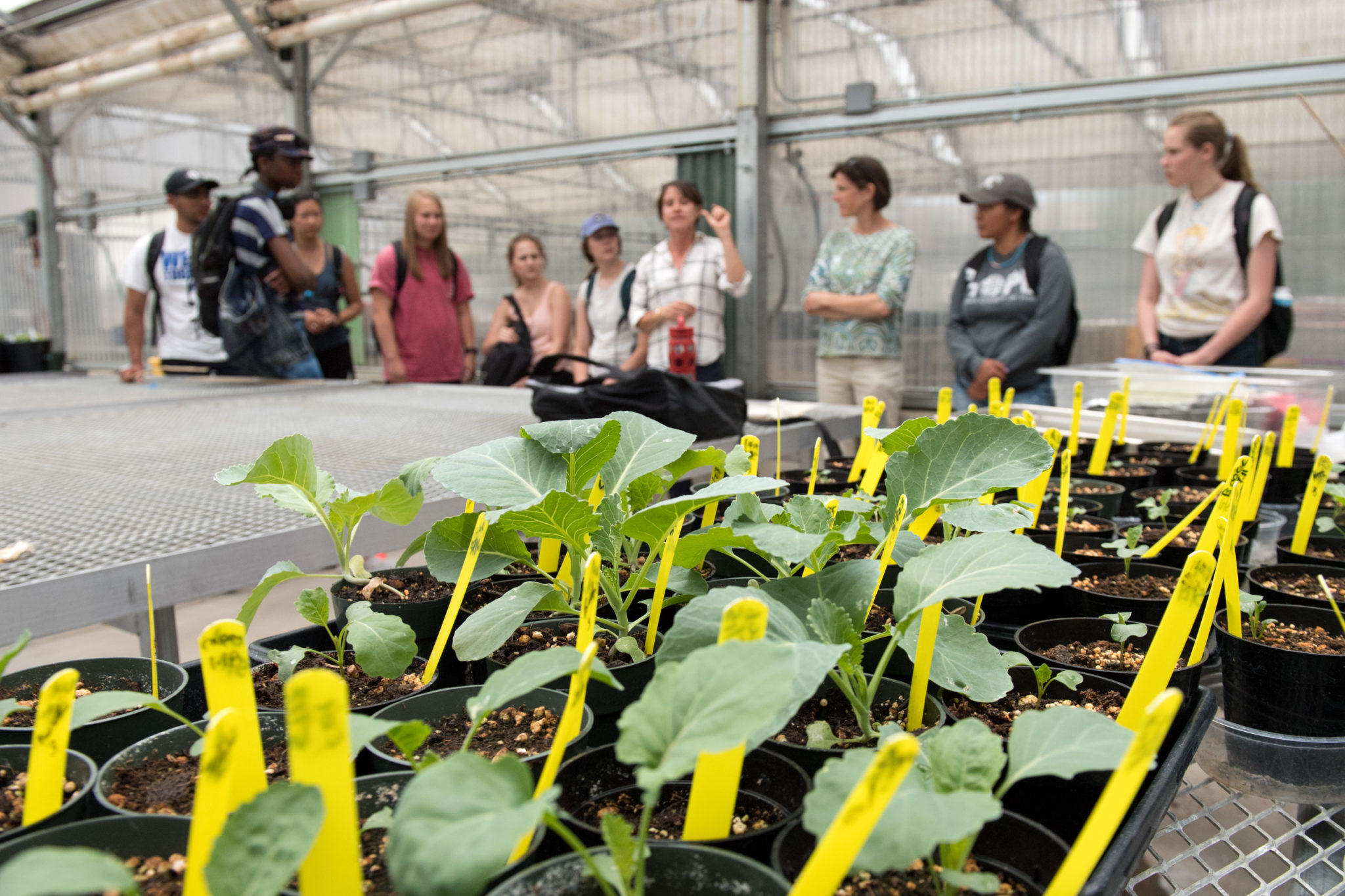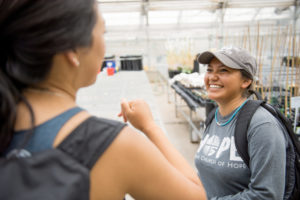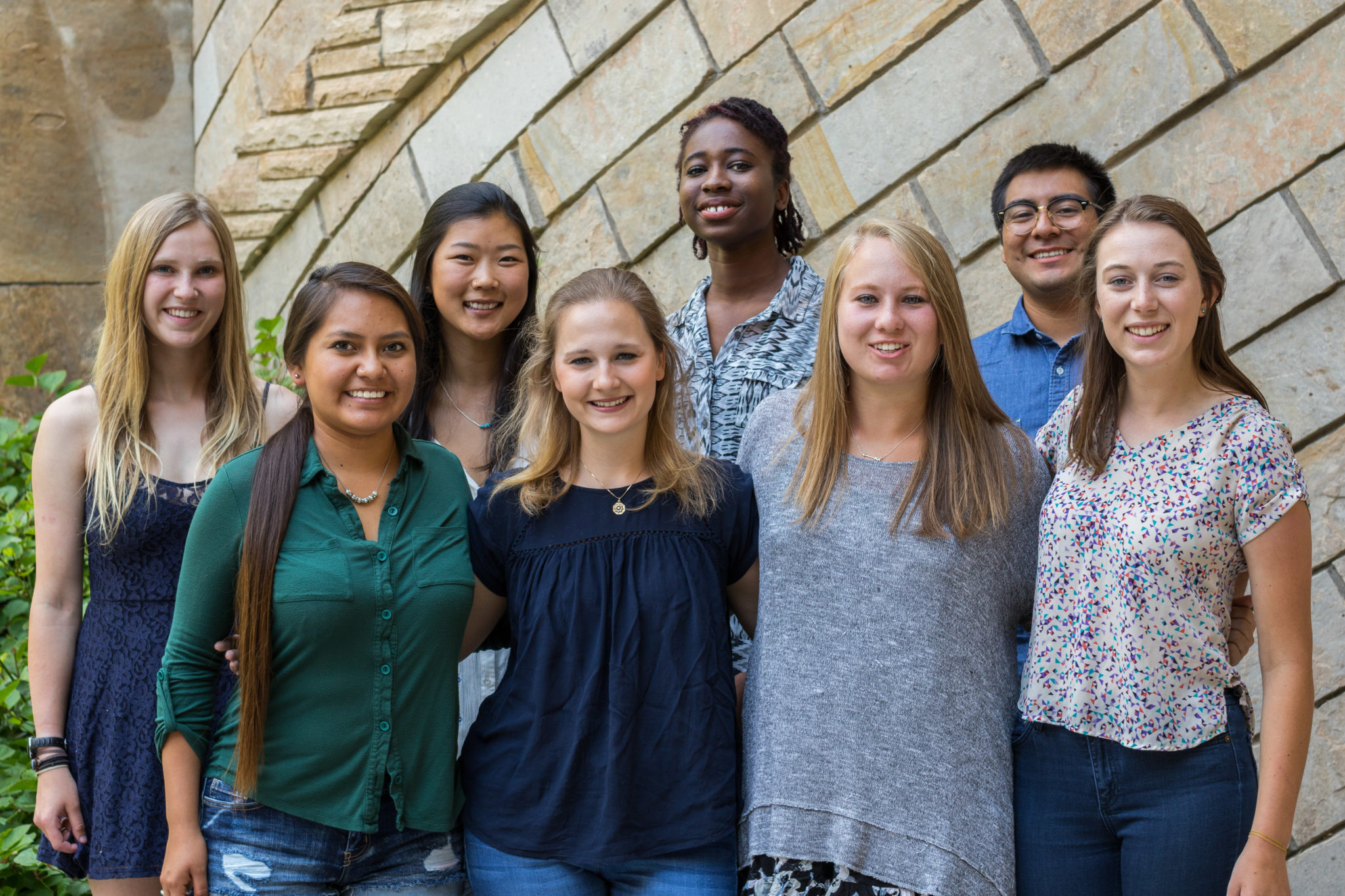
College students across the country are thinking about soil health, pests, and plant breeding. So, when you give eight science-minded undergraduates eight weeks to dive deep into those topics, you get students who can take what they’ve discovered back to their communities to continue important conversations about how we eat and live in our world.
Students from Colorado State University and universities in New York, Massachusetts, and Illinois recently wrapped up research and program activities as fellows in the Integrative Agroecology & Sustainability Summer Undergraduate Research Fellowship program. Faculty and staff from the CSU College of Agricultural Sciences and Warner College of Natural Resources, with support from CSU’s Graduate School, led the experiential summer fellowship experience.
Thinking about the future
Leanne Makens, an Ecosystem Science and Sustainability student in Warner College, appreciated the opportunity to connect with CSU professors and graduate students who are doing work that reflects her own goals. The industry and government leaders she met gave her plenty to think about as she plans for the future.
“I was able to explore possible careers,” she said. “I have a much better idea about my future opportunities in education as well, such as graduate school, through the career-building workshops that were incorporated into the fellowship.”

Fellows were chosen based on academic achievement, interests, and research/work experience. They spent most of their time working on focused research projects in their mentors’ labs, engaged in weekly professional development activities, toured field stations and research sites, and met with leaders in fields related to agroecology and sustainability.
Ignoring silos to focus on science
Kaye Holman, academic success and internship coordinator for the Department of Ecosystem Science and Sustainability and co-facilitator of the professional development activities during the summer session, says one of the most important aspects of this program has to do with keeping in touch with students as they progress in their studies and work.
“We want to support them in what they’re doing,” she said. “And, most importantly, we want to continue a relationship with them to ensure they continue to follow their research interests in graduate school and beyond.”
Shannon Archibeque-Engle, director of diversity and retention for the College of Agricultural Sciences who also facilitated the professional development activities, especially appreciates the collaborative nature of this program.
“This program has intentionally ignored academic silos and instead focused on scientific problems that affect all of us,” she said. “The students involved came from diverse academic backgrounds including engineering, agronomy, and environmental science, and their interests ranged from food justice to sustainable agriculture and water usage.”
USDA grant creates opportunity
Primary financial support for the program comes from a United States Department of Agriculture National Institute of Food and Agriculture grant, specifically the Research and Extension Experiential Learning for Undergraduate Fellowships grant, with professors John Moore and Arathi Seshardi as primary investigators. The three-year grant ensures that students will have this opportunity to engage in research and professional development at CSU for the next two summers. Application review for the 2018 program will begin early in the year with selections made by early April.
Contact Kaye Holman to learn more about the Integrative Agroecology & Sustainability Summer Undergraduate Research Fellowship program.
